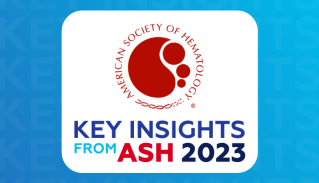
Clinical Research Focus. 13th Edition
February Marks the Beginning of Mandatory Use of CTIS for EMA’s New Clinical Trial Applications
The use of the Clinical Trials Information System (CTIS) has become mandatory for new clinical trial applications and now serves as the single-entry point for submission and regulatory assessment. The new regulation has come into effect on January 31, 2023. EMA informed its Management Board of the latest CTIS updates and of the ongoing collaborative work with its Member States to improve user experience.
Please follow the link to learn more.
FDA Plans to Move Away from Requiring Animal Tests Before Human Drug Trials
 According to legislation signed by President Joe Biden in late December 2022, new medicines need not be tested in animals to receive the U.S. Food and Drug Administration (FDA) approval, The change—long sought by animal welfare organizations—could signal a major shift away from animal use after more than 80 years of drug safety regulation.
According to legislation signed by President Joe Biden in late December 2022, new medicines need not be tested in animals to receive the U.S. Food and Drug Administration (FDA) approval, The change—long sought by animal welfare organizations—could signal a major shift away from animal use after more than 80 years of drug safety regulation.
Please follow the link to learn more.
Genotype-first Approach to Patient Care Successfully Traces Genomic Variants Back to Genetic Disorders
 National Institutes of Health researchers have published an assessment of 13 studies that took a genotype-first approach to patient care. The approach involves selecting patients with specific genomic variants and then studying their traits and symptoms; this finding uncovered new relationships between genes and clinical conditions, broadened the traits and symptoms associated with known disorders, and offered insights into newly described disorders.
National Institutes of Health researchers have published an assessment of 13 studies that took a genotype-first approach to patient care. The approach involves selecting patients with specific genomic variants and then studying their traits and symptoms; this finding uncovered new relationships between genes and clinical conditions, broadened the traits and symptoms associated with known disorders, and offered insights into newly described disorders.
Please follow the link to learn more.
Increased Risk of Venous Thromboembolism in Patients with Amyotrophic Lateral Sclerosis
 Reduced mobility in patients with amyotrophic lateral sclerosis (ALS) is hypothesized to increase the risk of venous thromboembolism (VTE). A few small, single-center studies have investigated the risk of VTE in patients with ALS. Given the high morbidity and mortality associated with VTE, further understanding of the risk in patients with ALS may inform clinical care. The objective of the new US Insurance Claims Database Study was to investigate the incidence of VTE in patients with ALS compared with controls without ALS.
Reduced mobility in patients with amyotrophic lateral sclerosis (ALS) is hypothesized to increase the risk of venous thromboembolism (VTE). A few small, single-center studies have investigated the risk of VTE in patients with ALS. Given the high morbidity and mortality associated with VTE, further understanding of the risk in patients with ALS may inform clinical care. The objective of the new US Insurance Claims Database Study was to investigate the incidence of VTE in patients with ALS compared with controls without ALS.
Please follow the link to learn more.
FDA Approves Long-Acting Injectable for Schizophrenia and Bipolar Disorder
 The US Food and Drug Administration (FDA) has approved Rykindo® – an atypical antipsychotic – for extended-release injectable suspension. The drug is administered via intramuscular injection and delivers the active ingredient, risperidone, via long-acting and extended-release microsphere technology. It is now indicated as a bi-weekly treatment for schizophrenia and as monotherapy or as adjunctive therapy to lithium or valproate for bipolar I disorder in adults.
The US Food and Drug Administration (FDA) has approved Rykindo® – an atypical antipsychotic – for extended-release injectable suspension. The drug is administered via intramuscular injection and delivers the active ingredient, risperidone, via long-acting and extended-release microsphere technology. It is now indicated as a bi-weekly treatment for schizophrenia and as monotherapy or as adjunctive therapy to lithium or valproate for bipolar I disorder in adults.
Please follow the link to learn more.
Artificial Pancreas Technology Set to Change Lives
 Britain’s independent National Institute for Health and Care Excellence (NICE) committee has recommended the use of hybrid closed loop systems for managing blood glucose levels in type 1 diabetes, with the technology described as a step towards an artificial pancreas. Individuals who are typically unable to manage their type 1 diabetes will be offered new technology to help them control their condition.
Britain’s independent National Institute for Health and Care Excellence (NICE) committee has recommended the use of hybrid closed loop systems for managing blood glucose levels in type 1 diabetes, with the technology described as a step towards an artificial pancreas. Individuals who are typically unable to manage their type 1 diabetes will be offered new technology to help them control their condition.
Please follow the link to learn more.






























